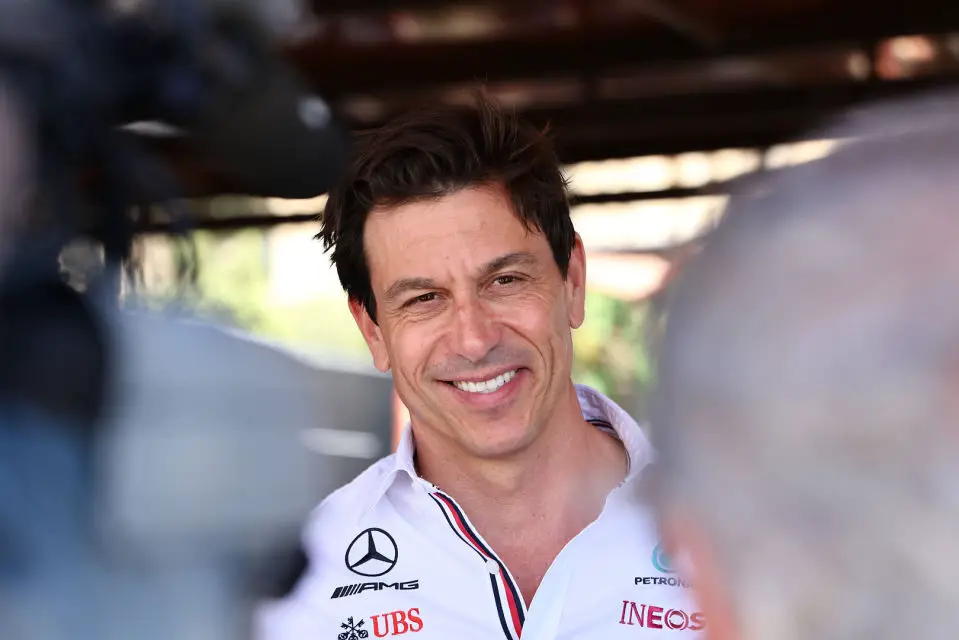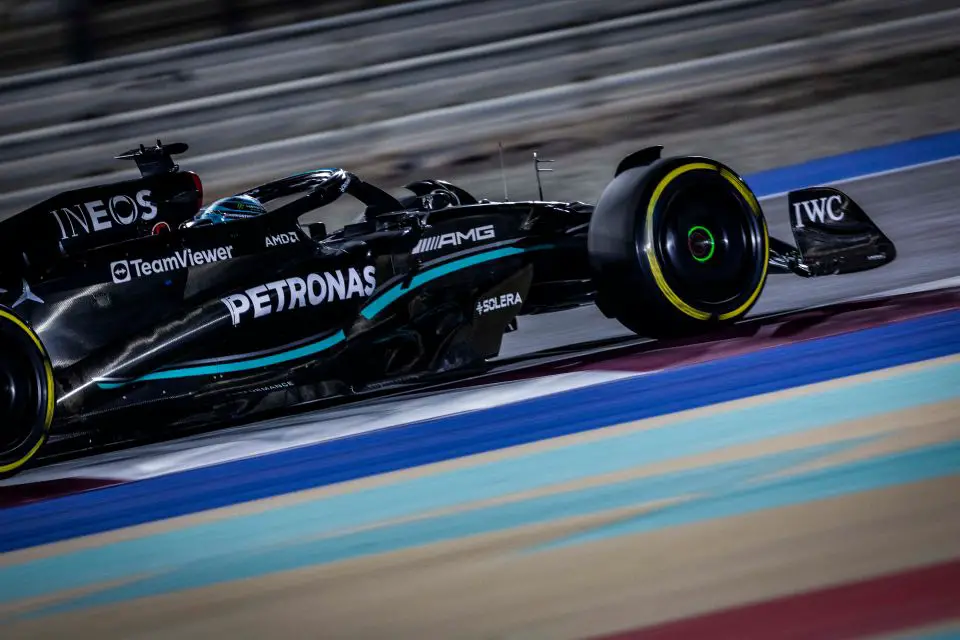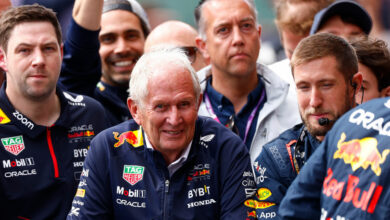Toto Wolff’s Crucial Turnaround: Steering Mercedes Towards F1 Triumph Amidst Challenges
Toto Wolff, the architect behind Mercedes’ Formula 1 success, confronts his most daunting task yet: adapting to new regulations and intense competition. His journey from 2013, transforming Mercedes into a dominant force, now faces a significant test as the team struggles to maintain its winning streak.
Key Takeaways:
- The Impact of New Regulations: The introduction of new regulations in 2022 drastically changed the competitive landscape for Mercedes, who have been struggling to keep up with teams like Red Bull. Wolff’s strategic skills are being tested as he navigates through these changes, especially with the challenges brought about by the W13 car’s issues, such as porpoising.
- Internal Changes and Adaptations: Mercedes has undergone significant internal changes, including the replacement of Mike Elliot with James Allison in 2023. Wolff’s leadership is pivotal in realigning the team to tackle these new challenges. Despite a difficult season, Mercedes managed to secure the second position in the Constructor Standings in 2023, indicating resilience and potential for recovery.
- A New Approach for Future Success: Looking ahead, Mercedes is realigning its car design to better suit Lewis Hamilton’s feedback and changing its car concept completely. Wolff’s commitment to the team is evident as he extends his stay for another three years, aiming to translate recent setbacks into future victories.


Toto Wolff’s tenure at Mercedes has been a testament to his ability to turn challenges into opportunities. Starting in 2013, Wolff has been instrumental in Mercedes’ rise to prominence in Formula 1, transforming the team from an underfunded outfit to a juggernaut. However, the introduction of new regulations in 2022 significantly altered the F1 landscape, presenting Wolff with perhaps his greatest challenge to date.
The changes brought about by the regulations were dramatic. Mercedes, once the dominant force, found itself struggling to keep pace with Red Bull. This shift in the competitive dynamic was likened to a change from a game of checkers to a game of chess, with Mercedes losing ground to their rivals. Wolff’s strategic prowess, which had been a cornerstone of the team’s success, was now being put to the ultimate test.
The team’s struggle was not just a result of external factors. Internal dynamics also played a role, with the departure of Ross Brawn in 2013 marking a significant shift. While Brawn had laid much of the groundwork for Mercedes’ success, Wolff’s leadership was crucial in realizing its potential. Under his guidance, Mercedes clinched their first world title in 2014, starting a period of dominance that lasted until the end of 2021. Wolff’s approach was characterized by a blend of financial investment and strategic insight, but the past two seasons have underscored that success in Formula 1 is never guaranteed.
The W13 car, which became notorious for its porpoising issues, symbolized the team’s struggles. This physical manifestation of their challenges was a stark reminder that even the most successful teams can falter. Wolff, known for his calm demeanor, was forced to navigate these uncharted waters, learning how to cope with losses and manage the frustration within the team.
In response to these challenges, Mercedes initiated several significant changes. Mike Elliot was replaced by James Allison in 2023, a move indicative of Wolff’s commitment to realigning the team’s strategy. Despite a difficult season, Mercedes finished second in the Constructors’ Standings, a testament to their resilience and ability to adapt.
Looking forward, Wolff’s decision to stay with the team for another three years signals his confidence in Mercedes’ potential for recovery and success. The team is taking a new approach to car design, aligning more closely with Lewis Hamilton’s input and overhauling their car concept. Allison’s experience and expertise will be crucial in translating Hamilton’s feedback into tangible improvements.
Wolff’s journey with Mercedes illustrates the cyclical nature of success in Formula 1. From dominance to challenge, his ability to adapt and evolve has been a defining characteristic of his leadership. As Mercedes prepares for the future, there’s a sense of humility and determination within the team. They’re thinking like underdogs, and paradoxically, this mindset could be precisely what they need to return to the top of Formula 1.


